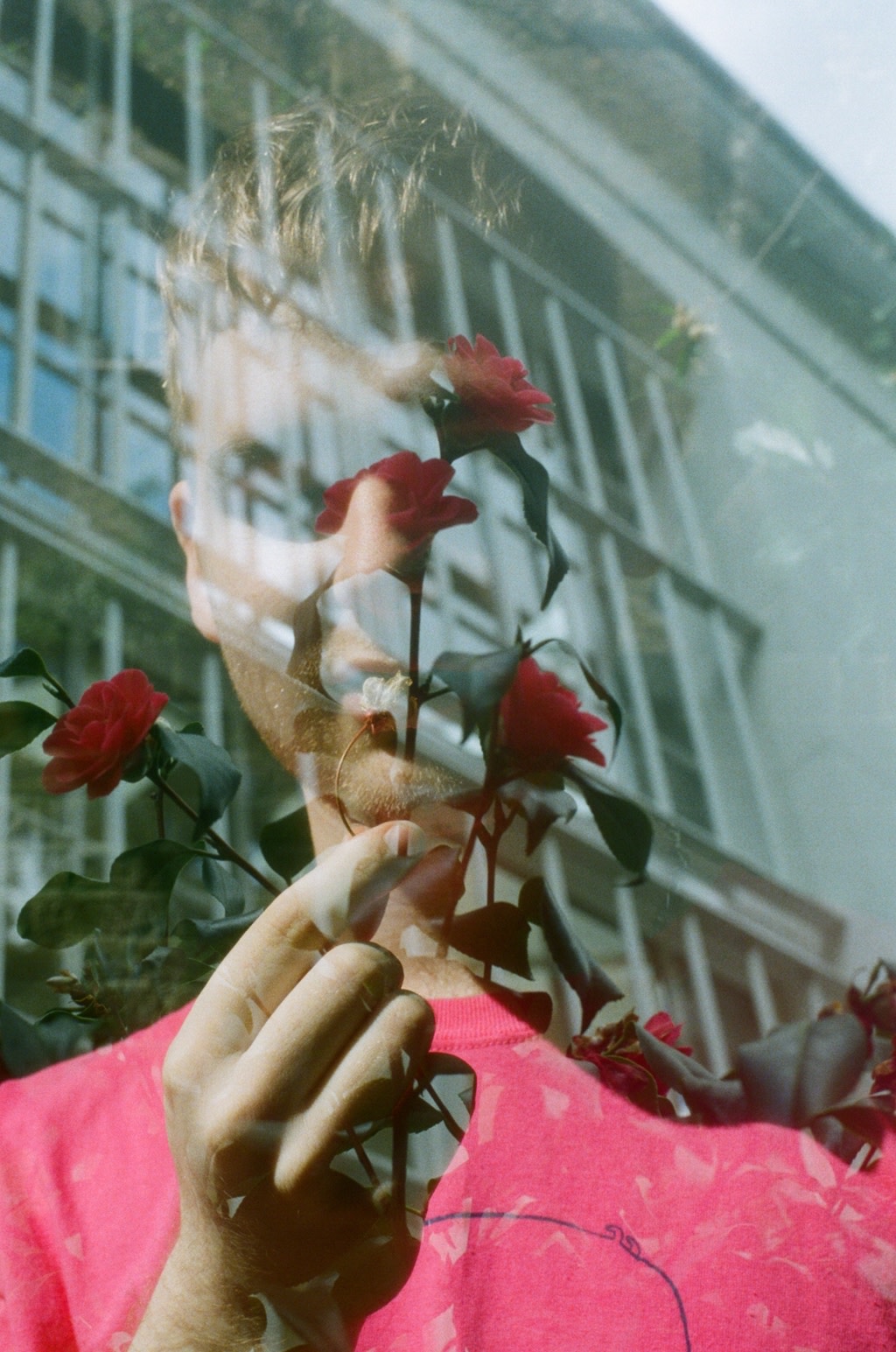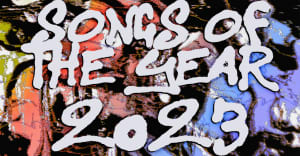 Darcy Haylor
Darcy Haylor
Nostalgia, as the old joke goes, is not as good as it used to be. Our cultural obsession with the past is at a saturation point; with every passing reboot, sequel, reunion tour, or ‘90s-kid meme, it feels like we’re no longer using what has gone before as a path of inspiration, but the only one.
This phenomenon is something British musician Mura Masa, a.k.a. 23-year-old Alex Crossan, considered at length while making his new album R.Y.C. [Raw Youth Collage], a bristling collection about finding a way through bleak horizons and generational woe. “We’re at a turning point in culture where the cultural nostalgia we share is something we’re being trapped insIde,” he says over the whirr of a coffee machine in a south London cafe. “We need to learn to use the good things and abandon the useless elements. This music is an exploration of that.”
Crossan admits he’s guilty of falling back into the comforting embrace of nostalgic thinking, often finding himself looking up YouTube footage of illegal raves in country fields that took place before he was born. “The comments are filled with E-boys saying ‘This is fucking sick,’” he says while laughing at the ridiculousness of a generation getting misty-eyed over others’ memories. “Above those comments, there’s a guy who was actually there. They’re both experiencing this same thing from totally different perspectives.”
It’s surprising that R.Y.C., an album partially about rejecting the comfort of the past in order to create a future belonging to the young people, is a scuzzy guitar album. His 2017 self-titled debut as Mura Masa arrived in the slipstream of U.K. poster boys Disclosure, and Crossan’s soulful take on easily digestible electronic pop music led to collaborations with everyone from A$AP Rocky and Charli XCX to BTS and Nile Rodgers. So why does his new music sound closer to the past he’s keen to escape than the future he was seemingly beamed in from?
“After the first album, I felt like I needed to one up myself — get even bigger features — and I spent six months thinking about that and not making any music,” he says. “It got to a year, and I was fed up. Somebody said to me ‘Why don’t you just do what you want?’ It was a really revelatory moment. I hadn’t even thought about it.” Part of Crossan’s frustration stemmed from a feeling that he was being pigeonholed as “an EDM dude who makes dance records” — a perception from which he wanted to escape. “I was making that music, and it started to grate on me. There are no limits to this project, so I skipped the difficult second album and went straight to the weird third one.”
So Crossan dove back into the guitar bands he loved as a teenager: New Order and Joy Division, shoegaze icons Slowdive, emo pioneers American Football, and the indefinable Talking Heads. The result of these influences is an album that bristles with the frustrated energy of a new band, while retaining the smooth edges and pop smarts of earlier Mura Masa material. Crossan has primarily worked with guest vocalists in the past, but for R.Y.C. he felt that his own voice should be featured more than ever before. “I’m method-acting [as] a frontman,” he suggests, citing David Bryne’s “strange confidence” as a guiding light.
 Darcy Haylor
Darcy Haylor
Crossan is aware of looking to indie rock, a genre that has struggled to gain a foothold in the streaming era, as an archaic fount of inspiration — but he bristles at the idea that rock has had its day. “It’s only dead if you’re making dead music,” he argues. “The 1975 are a guitar band and they’re huge.” His current obsession within the genre? Speedy Wunderground, the British label home to early releases by Black Midi, Squid, and Black Country, New Road.
While Crossan’s voice is more prominent on R.Y.C., the album does feature collaborators ranging from Slowthai and Clairo to Tirzah; he approached them with a PDF filled with ideas on the album’s theme, inspirations and Wolfgang Tillmans photographs. “Everyone has a reason for being there — that wasn’t my approach in the past,” he says with the air of a man who once worked with gibberish rapper Desiigner. He describes Clairo as “the leader of a DIY revival where instead of a garage people are bonding in a Discord forum,” further referring to Slowthai as a “true voice of rebellion” who tapped into the “emotional vulnerability” that everyone was asked to bring to the table.
“There’s a need for music that has urgency and emotional honesty,” Crossan claims, adding, “That’s why people are reintroducing themselves to guitar music — that instrument has an ability to emote.” This increased feeling of urgency also ties into his shift away from dance music, a response to the cognitive dissonance of partying while the world is burning and World War 3 is a trending hashtag. “‘Put your hands in the air like you just don’t care’ music,” as he puts it, “has had its time.”
Pushed for specific examples of the most pressing issues he feels are leaving his generation with no hope, Crossan is vague, citing general political upheaval and the rise of chain sandwich shops before saying there “doesn’t seem to be anything to look forward to, and that’s really oppressive.” Ultimately, though, he hopes the album can push back against the idea that “everything’s fucked and nobody can make a difference.”
“It’s part fear at the moment,” he adds, returning to the theme of nostalgia acting as a safety blanket. “What is in store going forwards is scary so people are leaning backwards.” And even though R.Y.C. doesn’t clarify whether Crossan thinks that is good or bad, in the here and now he’s made up his mind. “Personally I think it can be healthy. It’s a way to find some hope or escape from the situation that we’re in. People are just looking to those happier times to find some joy.”
